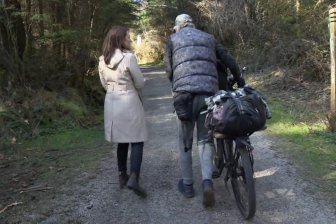Wrongfully convicted New Brunswick man dies months after exoneration
A wrongfully convicted New Brunswick man who spent 40 years trying to clear his name in a murder case before being declared innocent in January has died at the age of 80.
Innocence Canada, the organization that led the legal fight to exonerate Walter Gillespie and his friend Robert Mailman of their 1984 murder convictions, says Gillespie died Friday in his home in Saint John, N.B.
James Lockyer, founding director of Innocence Canada, called it sad that Gillespie, who spent 21 years in prison, died so soon after his name was cleared.
Details about the cause of death were not immediately known.

Gillespie and Mailman had their murder convictions overturned in January during a hearing at the Court of King’s Bench in Saint John, where Chief Justice Tracey DeWare said the two were “innocent in the eyes of the law.”
“It is most regrettable that it has taken 40 years for this day to come,” she said at the time.
The two men were previously convicted in the Nov. 30, 1983, killing of George Gilman Leeman, and both have been on parole for about 20 years. Mailman served 18 years of his life sentence in prison, while Gillespie served 21.
The January ruling came after federal Justice Minister Arif Virani ordered a new trial on Dec. 22, saying evidence had surfaced that called into question “the overall fairness of the process.”
DeWare offered the men a “sincere apology” and thanked them for their perseverance.
“Mr. Mailman and Mr. Gillespie have been deprived of decades of their liberty and shrouded by the shame of a murder conviction,” she wrote.
— with files from Global News’ Rebecca Lau
More on Toronto
&© 2024 The Canadian Press
View original article here Source












